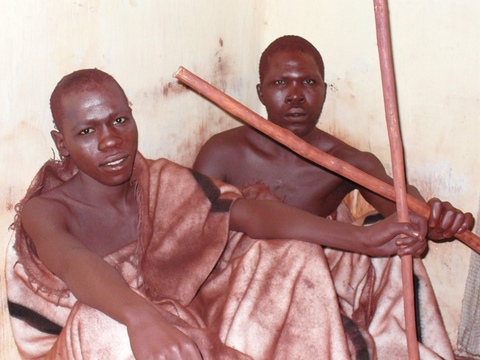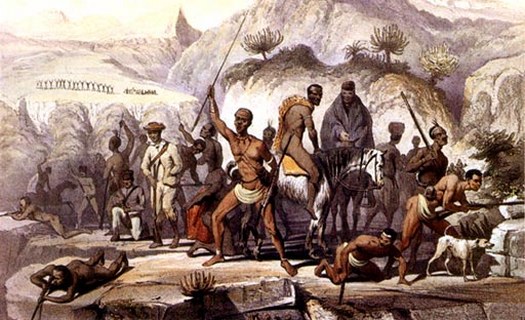The Xhosa tribe (correctly Amaxosa) is a tribe in South Africa whose home is in the Eastern Cape Province of South Africa.
The Xhosa tribe was originally known as the Aba-nguni after a very early ruler by the name of Mnguni. There is very little known about Mnguni except that he was the ancestor of a man named Xosa and as a result they became called the Xhosa people.
Many famous South Africans are from the Xhosa nation, notably Oliver Tambo, Stephen Biko, Thabo Mbeki, Bishop Desmond Tutu and well known cricketer Makhaya Ntini.
It is believed that the Xhosa tribe originally came from East Africa and were divided into a number of clans. Sometime in the 17th century they began moving south into what is now South Africa and after a number of internal wars they separated in about the mid 18th century into 2 sections the Gaikas and the Galekas.
At the time the first white settlers came into contact with the Xhosa in 1752, they had become established beyond the Great Fish River. From that time there frequent skirmishes between the two races and the Great Fish River became accepted as the southern boundary.
In 1835 the Governor of the Cape Sir Benjamin D’Urban set up the province of Queen Adelaide as a buffer territory but received orders from London to return it to the Xhosa despite the frequent raids across the border resulting in theft of the Settlers Cattle.
After 1856 the Xhosa people lived in relative peace with the European settlers which was largely due to the efforts of the Governor Sir George Grey who did his utmost to encourage the spread of education and civilization.
The Xhosa people are closely related to the Zulu people both in culture and language, with many similar customs that are practiced. One of the most well known traits of the Xhosa people is the click sounds used when speaking the language.
With the discovery of gold on the Witwatersrand, Xhosa’s flocked to the area and contributed a considerable percentage of the labour force. There are approximately 8 million Xhosa people in South Africa


